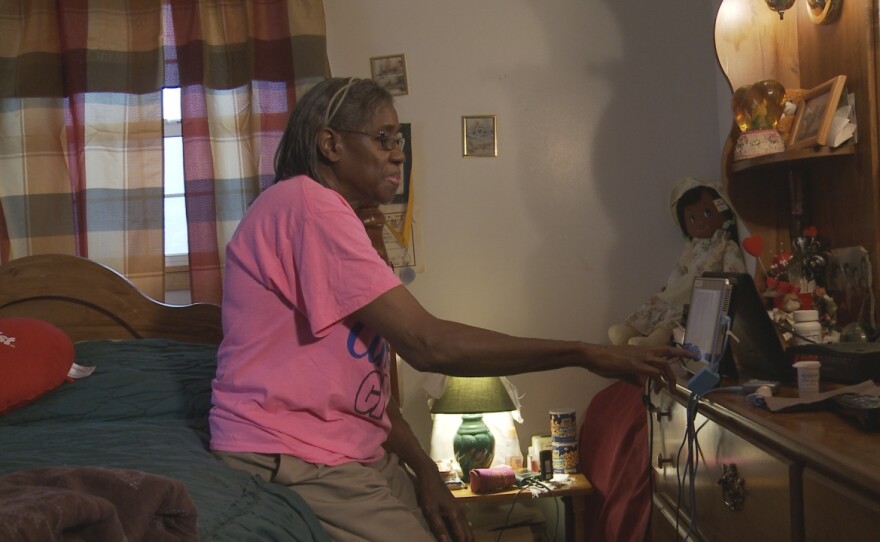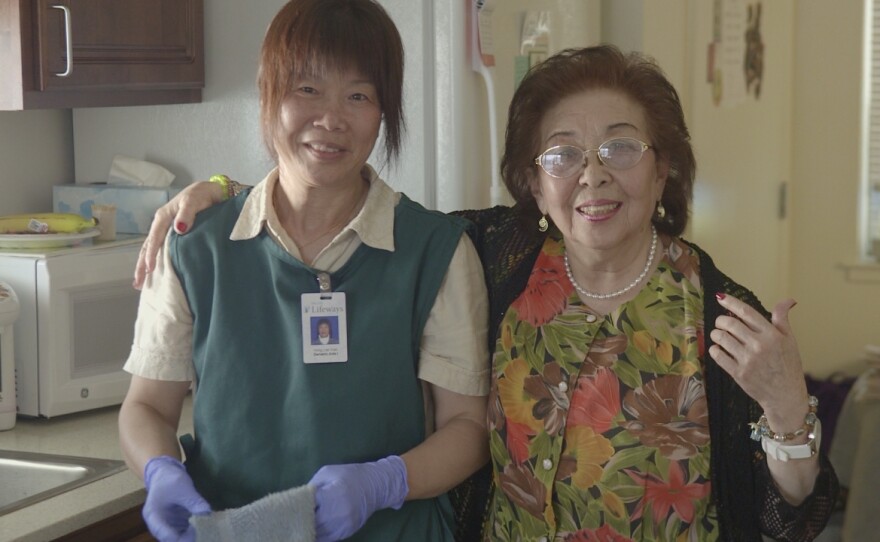A new film that premiered on PBS last night, Rx: The Quiet Revolution, explores a transformation underway in medicine toward patient-centered care. This approach to medicine focuses attention on the social, emotional, environmental and financial factors in a patient's life, coordinates their care within a team, and treats patients as equal partners in healthcare decisions.
Director David Grubin documents four practices across the country in which doctors are working together to provide this kind of care, especially to patients with complex chronic illnesses. Grubin’s film brings to life the doctors, nurses and other health care practitioners who are, as he puts it, “creating cultures of respect and inclusion, affirming the connection between community and wellness, and putting the patient center stage.” He spoke with Sound Medicine about the film (which is available to watch online), which was inspired by his own father, a family doctor from the days of house calls.
>Read more: Medicare now pays doctors to coordinate care for chronic disease
Sound Medicine: You grew up in the 1950s with a father who was a general practitioner. What did the practice of medicine look like in your household?
David Grubin: From the point of view of a little boy, I saw my father always out, always busy, always away. What he was doing was he was with his patients. My mother would say he spent way too much time with them. But they loved him. As a boy I looked as his black bag which was to me a mystery filled with miraculous things and today I realized he didn't really have that much in that black bag. But what he did have was a connection to his patients. And that relationship, to me seemed very moving
SM: Why did you think that the health-care system – and the innovators who are working to fix its problems – would make for an interesting documentary?
DG: What I realized is that there is a revolution going on out there in medicine but we never hear about it. All over the country there are doctors and nurses, physician assistants, nurse practitioners, who believe that it's important to put the patient at the center of their practice. That's what all this comes down to when they talk about it--it's called patient-centered care.It's not something that gets to be on the front page as genetic advances do--it's quiet--but it's happening everywhere. And I think of it as a revolution in the real meaning of that word. It's revolving. What my father did is coming around again. It's not like we want to fall out all the great medical advances that we have today. God knows, it's fabulous. But we're also bringing back--we're evolving back--to that caring relationship, that personal relationship. That's what I saw out in the field and to me it's a very hopeful revolution.
SM: You visited these places and met these innovators and put together this film--when you got back, did you feel more optimistic about the healthcare system in America?
DG: What I loved doing about this program was the optimism and the hope that I found in the people that I've been working with. you know you can really get bummed out in the healthcare debate with all the pessimism and the hopelessness that's out there. And here you see poeple that are really making it work. Imagine being in a place in Alaska with 65000 people with high, high patient satisfaction when they measure it. That makes you feel great. It's the same with talking to these doctors: The humanity that they show, the effort that they're putting in to making the healthcare system work. As one of them said to me, "We have more possibilities to help people than ever before in history. We have these miracle drugs and great technologies, our job now is to get it right, to deliver the care in a way that's going to work. And they're trying. It makes me feel good.






